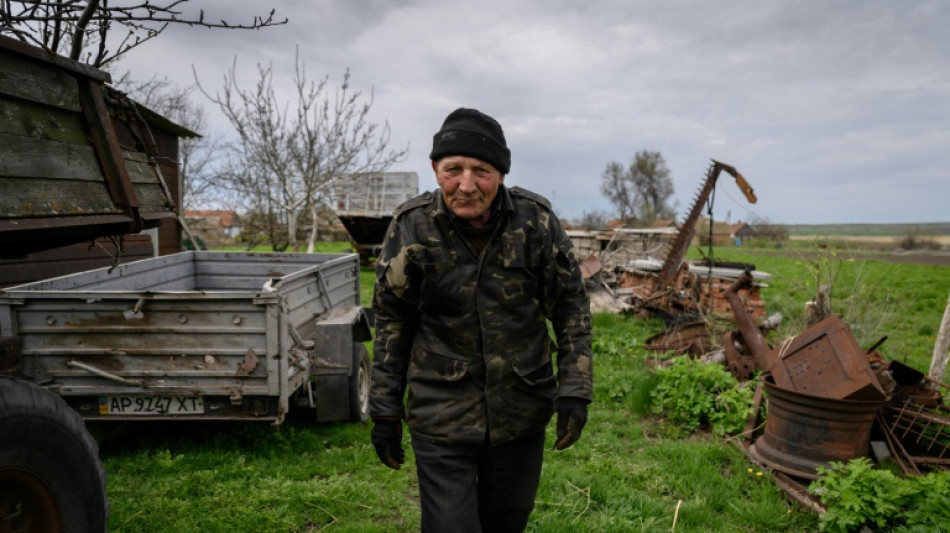
-
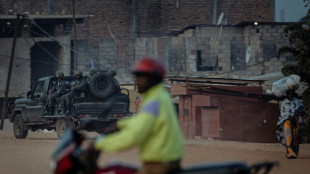 M23 militia says to pull out of key DR Congo city at US's request
M23 militia says to pull out of key DR Congo city at US's request
-
Thousands of glaciers to melt each year by mid-century: study
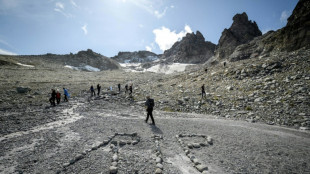
-
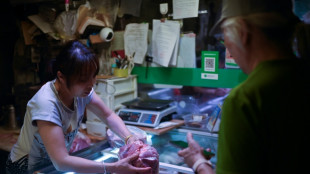 China to impose anti-dumping duties on EU pork for five years
China to impose anti-dumping duties on EU pork for five years
-
Nepal starts tiger census to track recovery

-
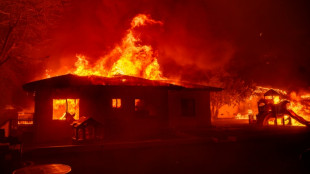 Economic losses from natural disasters down by a third in 2025: Swiss Re
Economic losses from natural disasters down by a third in 2025: Swiss Re
-
Indonesians reeling from flood devastation plea for global help
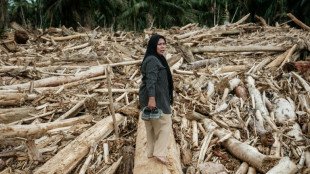
-
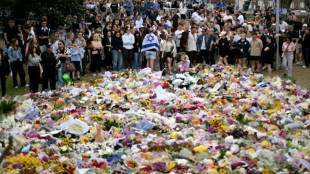 Timeline: How the Bondi Beach mass shooting unfolded
Timeline: How the Bondi Beach mass shooting unfolded
-
On the campaign trail in a tug-of-war Myanmar town
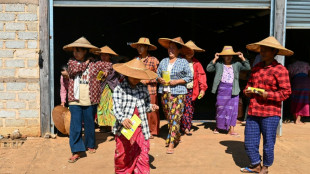
-
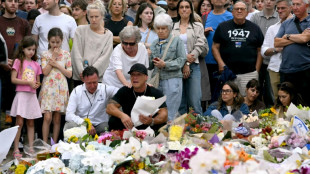 Bondi Beach suspect visited Philippines on Indian passport
Bondi Beach suspect visited Philippines on Indian passport
-
Kenyan girls still afflicted by genital mutilation years after ban
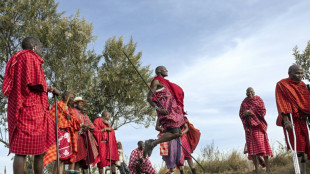
-
 Djokovic to warm up for Australian Open in Adelaide
Djokovic to warm up for Australian Open in Adelaide
-
Man bailed for fire protest on track at Hong Kong's richest horse race

-
 Men's ATP tennis to apply extreme heat rule from 2026
Men's ATP tennis to apply extreme heat rule from 2026
-
10-year-old girl, Holocaust survivors among Bondi Beach dead
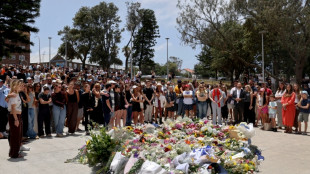
-
 Steelers edge towards NFL playoffs as Dolphins eliminated
Steelers edge towards NFL playoffs as Dolphins eliminated
-
Australian PM says 'Islamic State ideology' drove Bondi Beach gunmen
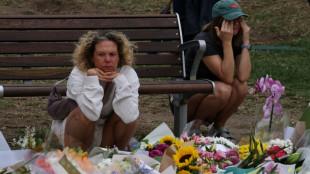
-
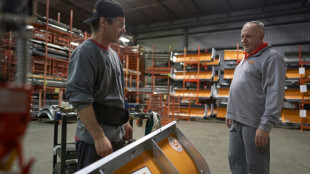 Canada plow-maker can't clear path through Trump tariffs
Canada plow-maker can't clear path through Trump tariffs
-
Bank of Japan expected to hike rates to 30-year high

-
 Cunningham leads Pistons past Celtics
Cunningham leads Pistons past Celtics
-
Stokes tells England to 'show a bit of dog' in must-win Adelaide Test

-
 EU to unveil plan to tackle housing crisis
EU to unveil plan to tackle housing crisis
-
EU set to scrap 2035 combustion-engine ban in car industry boost
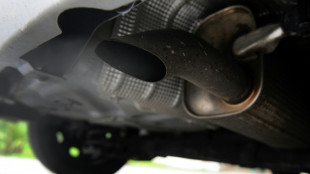
-
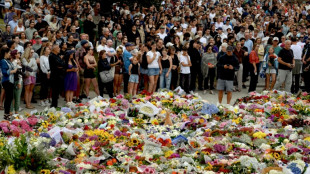 Australian PM visits Bondi Beach hero in hospital
Australian PM visits Bondi Beach hero in hospital
-
'Easiest scam in the world': Musicians sound alarm over AI impersonators

-
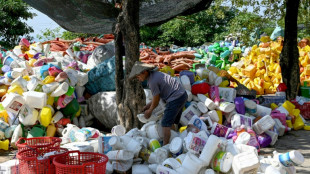 'Waiting to die': the dirty business of recycling in Vietnam
'Waiting to die': the dirty business of recycling in Vietnam
-
Asian markets retreat ahead of US jobs as tech worries weigh
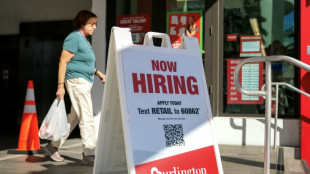
-
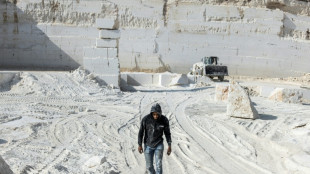 Famed Jerusalem stone still sells despite West Bank economic woes
Famed Jerusalem stone still sells despite West Bank economic woes
-
Trump sues BBC for $10 billion over documentary speech edit

-
 Chile follows Latin American neighbors in lurching right
Chile follows Latin American neighbors in lurching right
-
Will OpenAI be the next tech giant or next Netscape?

-
 Khawaja left out as Australia's Cummins, Lyon back for 3rd Ashes Test
Khawaja left out as Australia's Cummins, Lyon back for 3rd Ashes Test
-
Australia PM says 'Islamic State ideology' drove Bondi Beach shooters
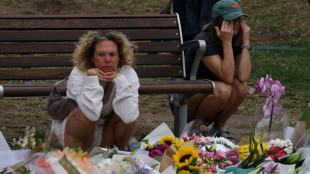
-
 Scheffler wins fourth straight PGA Tour Player of the Year
Scheffler wins fourth straight PGA Tour Player of the Year
-
New APAC Partnership with Matter Brings Market Logic Software's Always-On Insights Solutions to Local Brand and Experience Leaders

-
 Security beefed up for Ashes Test after Bondi shooting
Security beefed up for Ashes Test after Bondi shooting
-
Wembanyama blocking Knicks path in NBA Cup final

-
 Amorim seeks clinical Man Utd after 'crazy' Bournemouth clash
Amorim seeks clinical Man Utd after 'crazy' Bournemouth clash
-
Man Utd blow lead three times in 4-4 Bournemouth thriller

-
 Stokes calls on England to 'show a bit of dog' in must-win Adelaide Test
Stokes calls on England to 'show a bit of dog' in must-win Adelaide Test
-
Trump 'considering' push to reclassify marijuana as less dangerous

-
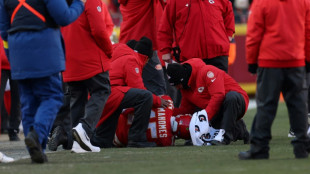 Chiefs coach Reid backing Mahomes recovery after knee injury
Chiefs coach Reid backing Mahomes recovery after knee injury
-
Trump says Ukraine deal close, Europe proposes peace force

-
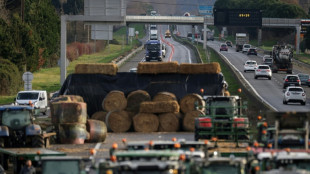 French minister urges angry farmers to trust cow culls, vaccines
French minister urges angry farmers to trust cow culls, vaccines
-
Angelina Jolie reveals mastectomy scars in Time France magazine

-
 Paris Olympics, Paralympics 'net cost' drops to 2.8bn euros: think tank
Paris Olympics, Paralympics 'net cost' drops to 2.8bn euros: think tank
-
Chile president-elect dials down right-wing rhetoric, vows unity
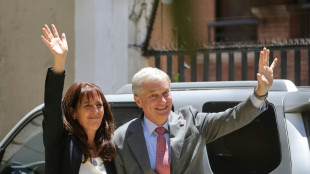
-
 Five Rob Reiner films that rocked, romanced and riveted
Five Rob Reiner films that rocked, romanced and riveted
-
Rob Reiner: Hollywood giant and political activist

-
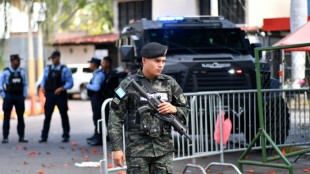 Observers say Honduran election fair, but urge faster count
Observers say Honduran election fair, but urge faster count
-
Europe proposes Ukraine peace force as Zelensky hails 'real progress' with US


Ukraine's poorest sow seeds under the bombs
Standing in front of the home of his boss recently hit by a bomb in southern Ukraine, Vassili Kushch never wavers in his commitment to the land, picking up his shovel and getting to work.
"I must work. I don't have anywhere else to go," labourer Kushch, 63, says in the village of Mala Tokmachka, 70 kilometres (43 miles) southeast of Zaporizhzhia.
The village, only a few kilometres from the invisible line separating Moscow's troops from Kyiv's forces, wakes up every night to Russian rockets splitting the sky and discovers the disastrous consequences every morning.
Russian strikes mangled the metal fence belonging to Kushch's boss. Several windows in his old tractors, parked in the garden, have shattered.
Rubble litters the ground. The small bomb responsible for the damage has gouged a hole in the ground, right in front of the home.
Kushch doesn't hold his words back for the "Russian bastards" who destroy his village but soon lifts his shovel once more.
On the other side of the road, another bomb destroyed a red-brick building.
"The neighbour was in the kitchen. She left to hide in the fields," Kushch says, before adding: "Thank God, the cow is still alive."
Kushch is one of hundreds of residents who decided to stay in the village, though many others fled after two months of war.
The last ones to remain are the poorest and most vulnerable, often the oldest, and those whose only riches come from the earth.
Kushch doesn't have much. The army jacket he wears was "given by a prison guard", his loose trousers "date back to the Soviet era" and he lives in a small room, which "shakes" every time Russians strike.
- 'Can survive with milk' -
"It's like I'm naked," sighs the former driver, who has been doing odd jobs for 30 years. "I don't have money to buy anything."
Kushch, a divorced father of five who is not in contact with his children, would like to "bury alive" the "katsap", a pejorative term used to refer to Russians.
But he knows he doesn't have any chance against Moscow's forces with just his shovel and so he remains in Mala Tokmachka.
"If we don't sow the potatoes, we will have none to harvest. Same for onions. And so the cows will die of hunger," he says with evident fear, rolling a cigarette with tobacco he has grown himself.
It would be a similar tragedy for a man whose parents, born in 1927, experienced the great famine of 1932-33, and another in 1946-47.
Kyiv has vigorously campaigned for the Stalin-era famines on its territory in the 1930s -- known as the Holodomor -- to be recognised as genocide.
These tragedies taught him one thing: "You can't just live on water, but you can survive with milk."
Olga Tus, who hosts Kushch, accuses him of being "a drunkard", adding: "When he drinks, we don't approach him. Otherwise, it's OK."
- 'Swines' -
But the 60-something hardy woman, who ties her hair under a magenta scarf, shares two cardinal values in rural Ukraine with Kushch.
The first is a hatred of Russians -- Tus worked in Moscow for 20 years and described Russians as "swines".
The second is the commitment to the land and to sow seeds because, as the local saying goes, "when the flowers start to bloom, everything ends".
Tus wants to believe that the war "will end soon" and doesn't "even consider for a second" that Russian troops can take Mala Tokmachka, despite the sounds of rockets rumbling above.
A bet that the "rich" clearly did not believe in, having fled the village, in contrast with the "poor" who stayed, according to Tus.
For several days, AFP observed many convoys of combine harvesters and other gleaming tractors on the secondary roads leading to Zaporizhzhia, a large city still under Kyiv's control.
Yuri, head of the territorial defence of Mala Tokmachka, says "it's to prevent these machines being looted by Russians".
Natalia Bouinitskaia and her husband, Guennady, have other concerns.
The couple cannot leave because of Natalia's mother, Vera Dounda, who wishes to die in the village where she was born.
"I'm scared when it shakes too strongly. So, I lie down and I look at the window," the 84-year-old says, who can no longer walk "not because of an illness but because of age".
Dounda thinks of a future without war, or of her glorious past, when she could "run, run, run", without any bombs to flee.
A.Santos--PC
